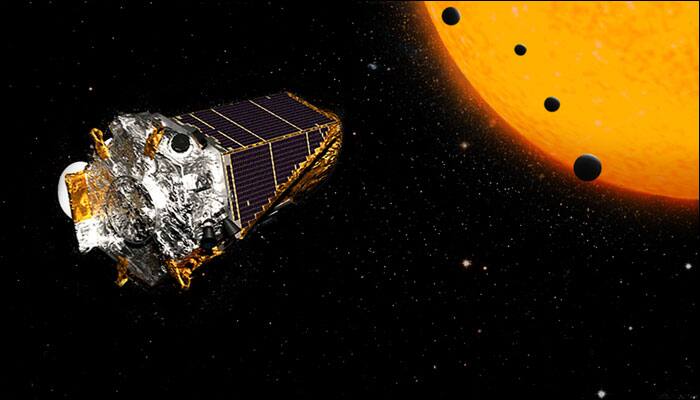New Delhi: Kepler, NASA’s planet-hunting space telescope, has time and again made amazing discoveries, digging up great secrets about our solar system.
Whether it is a new planet, a number of stars – even exploding ones – or a circumbinary planet, Kepler has never failed to disappoint the curious minds of space enthusiasts.
Now, NASA's Kepler spacecraft which is on its K2 mission has become the means through which, astronomers have discovered and confirmed the existence of a wealth of new worlds.
Among the findings tallying 197 initial planet candidates, scientists have confirmed 104 planets outside our solar system. A planetary system comprising four promising planets that could be rocky have also been confirmed.
According to NASA, the planets, all between 20 and 50 percent larger than Earth by diameter, are orbiting the M dwarf star K2-72, found 181 light years away in the direction of the Aquarius constellation. The host star is less than half the size of the sun and less bright. The planets’ orbital periods range from five and a half to 24 days, and two of them may experience irradiation levels from their star comparable to those on Earth. Despite their tight orbits — closer than Mercury's orbit around the sun — the possibility that life could arise on a planet around such a star cannot be ruled out, according to lead author Crossfield, a Sagan Fellow at the University of Arizona's Lunar and Planetary Laboratory.
In May this year, Kepler successfully verified the existence of 1,284 planets in total, making this the single largest finding of planets to date.
















